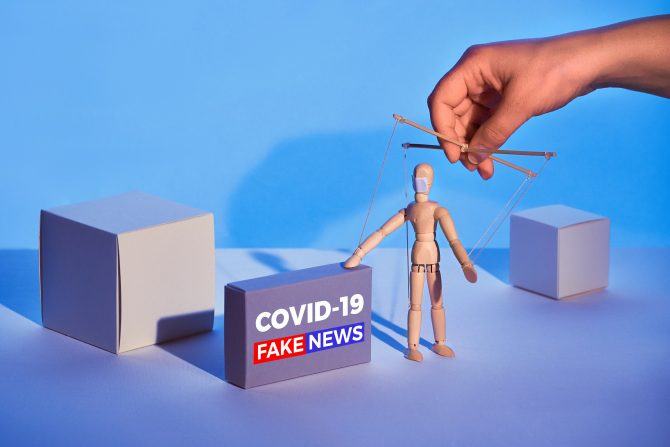
Fake News. We hear it all the time. But, what is fake news? Is coronavirus fake news? How can we make sense of information regarding coronavirus, especially when things seem to change by the minute? With the internet, we have access to an enormous wealth of information, but that also means that there is an abundance of false information that tricks people into believing things that are, well, fake.
With this in mind, I’m going to provide you with 5 easy tips to help you become a more informed consumer of information.
1. Look up the Source of Information
Where did you see the news? Was it from a friend? Did it circulate on social media? Was it from a source you’ve never heard of before?
Let’s face it, we’re bombarded with so much information, that it’s often too much work to dive more deeply into the topic or do our own research. It’s much easier to just accept what we read as true! But, that’s exactly how misinformation spreads. If the source looks shady, or if you saw the “news” from a friend who shared it on Facebook, do your due diligence and see if the organization that shared it is legitimate and trustworthy. See if any other major news outlets or trustworthy organizations are also talking about it. If they are, chances are it is probably real.
2. Read the article, not just the title
Many headlines are meant to be clickbait – they can often be outrageous in order to persuade you to read the full article. So, take the time to actually read the article, because it may contradict what the title says. And oh, regarding my earlier question? No, coronavirus is not fake news and you should be taking it very seriously. If you just read the title of my article, how would you know if coronavirus is real or fake?
3. Does the source seem subjective or objective?
Often times, articles that are published might be trying to push a certain agenda, or trying to sell you something. If you’re reading an article about how doing these “Five Easy Steps Will Make you Lose 100 Pounds in Three Months”, and the page is filled with weight-loss advertisements, maybe there’s a hidden agenda. Maybe they’re trying to sell you something, or get you to buy their product.
Also, look to see what the author’s credentials are, and if they cite their sources. Make sure that the sources they cite are trustworthy.
4. Use Websites that Verify Fake News
Snopes is a great resource for fact-checking rumours on the internet. Politifact is another great resource that rates the accuracy of political news stories.
5. Ask a Librarian!
Ask a librarian, opens a new window if you’re still unsure! We’re experts when it comes to information. I literally have a degree called a Master of Information. Very cool, I know. But seriously, please get in touch with us if you want to verify a source. That’s just one way that we, at Markham Public Library, can help you during these trying times!
Additional Resources:


Add a comment to: Is Coronavirus Fake News?! 5 Tips to Help you Distinguish What Is Real and What Isn’t